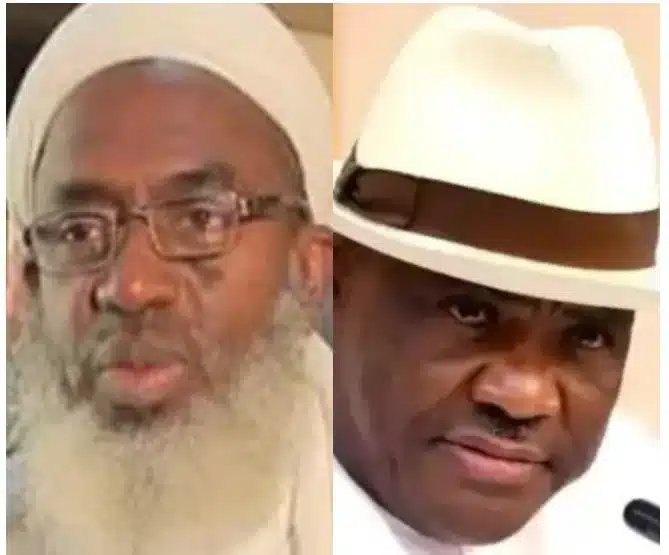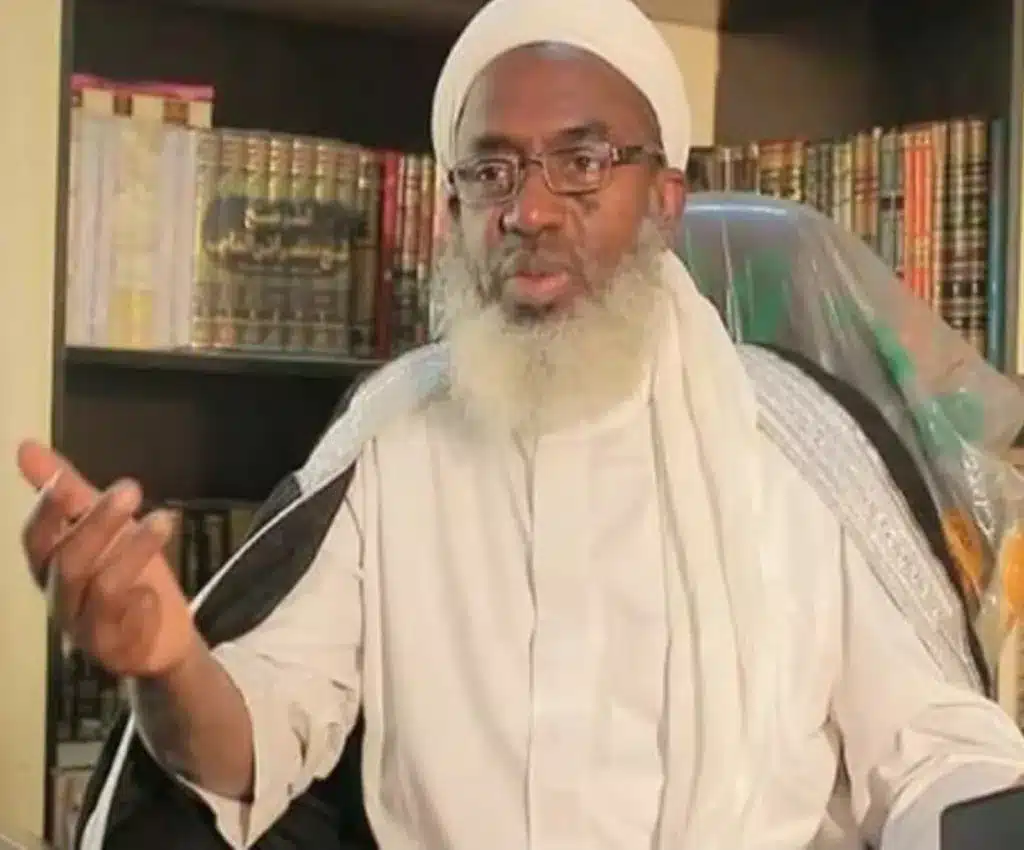Islamic cleric Sheikh Ahmad Gumi has made a highly controversial statement about Nyesom Wike, the Minister of the Federal Capital Territory, Abuja. Gumi, known for his outspoken views on various national issues, referred to Wike as a “satanic person” over his planned collaboration with Israel.

This comes after the FCT Minister reportedly received the Israeli Ambassador to Nigeria in his office in order to collaborate with Israel over the security challenges in Abuja. He made the statement in a sermon shared on his Facebook page on Thursday, October 19, 2023.
“The Minister of the FCT is a Satanic person; I said it before when he was appointed and some people were grumbling. He has gone and brought the Israeli Ambassador, that’s what someone sent, and I am yet to watch it.
“But what is confirmed is he said they will collaborate with the Israelis on Abuja’s security issues.“Abuja will now become an extension of Tel Aviv and when they see anyone with a beard like us, they will say it is Bin Laden and we will be killed”, Gumi said.

The statement came as a surprise to many, given the typically measured and conciliatory tone that religious leaders like Sheikh Gumi ought to adopt. Nyesom Wike, a two-term governor known for his assertive governance style, has been a polarizing figure in Nigerian politics, but such strong language from a respected religious leader is unprecedented.
The controversial remark has sparked a wave of reactions from both political and religious circles. Supporters of Governor Wike have denounced Sheikh Gumi’s statement as baseless and divisive, while others have called for Gumi to clarify his allegations.
In response, Sheikh Gumi defended his statement, citing concerns about governance issues and the need for more transparency in Nigerian politics. He argued that the use of strong language was a deliberate attempt to draw attention to the issues he sees in the FCT administration.
This incident underscores the growing influence of religious leaders in Nigeria’s political landscape and their willingness to weigh in on controversial topics. It also highlights the need for constructive dialogue and collaboration between religious figures and political leaders to address the challenges facing the nation.
The controversy surrounding Sheikh Ahmad Gumi’s statement is likely to continue dominating headlines in the coming days, and it raises important questions about the role of religious leaders in shaping the nation’s political discourse. As Nigerians await further developments, the focus remains on whether this incident will lead to a more open and productive dialogue between political leaders and religious figures or further polarization in the country’s political landscape.
This is very interesting